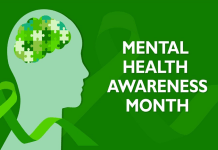In recent social media discourse, a notable misconception has gained traction, suggesting that sunscreen could potentially cause skin cancer, a claim vehemently debunked by medical experts. This narrative has been amplified across platforms like TikTok, where numerous creators have argued that the chemicals in sunscreens pose greater risks than exposure to the sun itself, sparking widespread concern and confusion.
The genesis of this misinformation can be traced back to a 2021 incident involving the recall of certain Neutrogena spray sunscreens and an Aveeno product due to the presence of benzene, a known carcinogen. Despite the recall, experts clarified that benzene is not an ingredient in sunscreen formulations. Harvard Medical School further affirmed that the levels of benzene detected were minimal and unlikely to pose health risks.
Addressing the issue, medical professionals and health authorities emphasized the critical role of sunscreen in protecting against harmful UV radiation, a proven cause of skin cancer. Krista Rubin, a nurse practitioner from Mass General Cancer Center’s Melanoma Team, underscored that while there’s clear evidence linking UV radiation to skin cancer, sunscreens themselves do not pose a carcinogenic risk.
The public perception surrounding sunscreen has been influenced by a national survey conducted by the Orlando Health Cancer Institute, revealing concerning beliefs among young adults. Shockingly, one in seven adults under 35 expressed the misguided belief that sunscreen is more detrimental to skin health than direct sun exposure. Additionally, a significant portion (23%) believed that staying hydrated alone could prevent sunburns, highlighting widespread misinformation on sun protection.
Rajesh Nair, M.D., an oncology surgeon at Orlando Health, commented on the persistent myth of a “healthy tan,” emphasizing that any form of tanning signifies skin damage rather than health. This misconception, he noted, perpetuates a dangerous narrative despite scientific consensus on the risks associated with UV exposure.
The dissemination of misinformation on social media has been a growing concern, fueled by well-intentioned yet misinformed individuals and a select group of dermatologists. Eric Dahan, a social media expert and founder of Mighty Joy, highlighted the tendency for sensational but inaccurate claims to overshadow nuanced scientific truths.
Dahan noted a broader societal trend of distrust towards companies, driven by past instances of harmful chemicals found in consumer products. This sentiment has fueled skepticism regarding the safety of sunscreen ingredients and the regulatory practices surrounding their use.
In recent years, there has been an increasing incidence of skin cancer among young people, contributing further to public skepticism towards sunscreen safety. Dahan suggested that this rise in cancer rates has exacerbated concerns and heightened scrutiny of both corporate accountability and regulatory oversight.
The complexity of scientific findings and the nuanced nature of health recommendations often pose challenges in effectively communicating accurate information to the public. Dahan cautioned that without expert guidance, it becomes challenging for consumers to discern between factual information and misleading claims circulating on social media.
As discussions around sunscreen safety continue to evolve, experts stress the importance of evidence-based education and transparent communication. Medical professionals advocate for continued use of sunscreen as part of a comprehensive sun protection strategy, alongside other preventive measures such as seeking shade and wearing protective clothing.
Moving forward, initiatives aimed at enhancing public understanding of sunscreen efficacy and safety are crucial. These efforts seek to counteract misinformation, empower consumers with accurate knowledge, and promote responsible sun safety practices among individuals of all ages.























